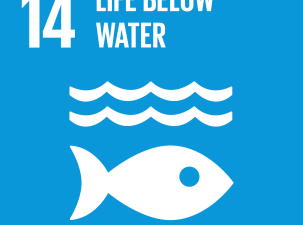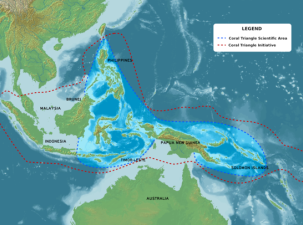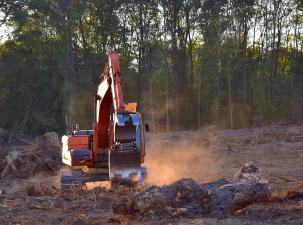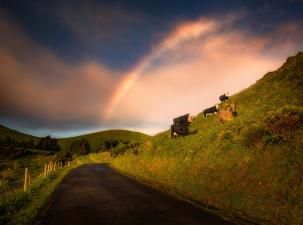Nature
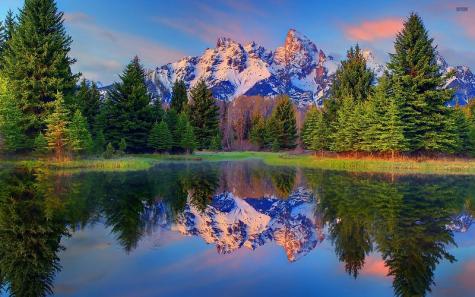
The Value of ➡️ NATURE - Economic, Social, and Our Very Existence
Nature is all around us. It is the foundation of our entire physical world and all the life in it that nature supports.
Humans rely on healthy, balanced ecosystems for fresh water, the animals and fish we eat, and the soil we use to grow crops. Forests help to produce and clean the air that we breathe. They provide the wood for us to build and homes to 80% of Earth's land animals and plants.
Humans need nature to survive. Yet we continue to destroy it to the point where 70% of the Earth's land has now been altered for logging, agricultural use, and livestock grazing. Human-induced climate change, pollution, plastic, fertilisers and pesticides, and rapid urbanisation have pushed nature to the brink.
Jump straight to our resources on ➡️ Nature
Explore our comprehensive guides on -
-
The Climate Crisis
-
Nature Conservation
-
United Nations Climate and Biodiversity Conferences
Used in a sustainable way, the economic and social values of nature are endless. So, too, are the health benefits. Spending time in nature has been proven to reduce stress, improve mood, and a host of other wonderful gifts that nature freely provides.
The "Environment is no one’s property to destroy; it’s everyone’s responsibility to protect." - Mohith Agadi
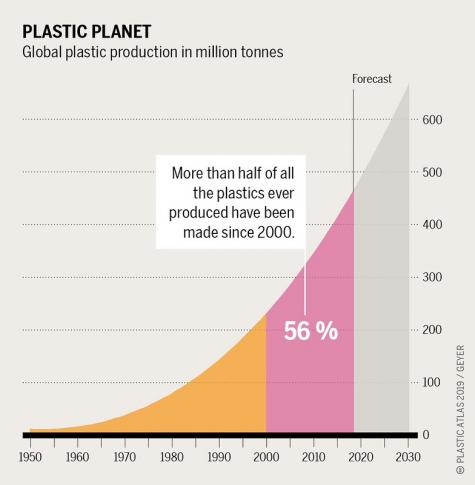
Protecting our Water & Oceans
Our planet is 71% water, 96% of which is held in our oceans. These gigantic bodies of water provide us with 50% of the oxygen we need to breathe and can absorb 50% more carbon dioxide than our atmosphere.
Oceans and rivers provide protein for 3 billion people, play a key part in our water cycle, and provide livelihoods for billions.
Explore key issues affecting our water systems today, such as ocean acidification, oil spills, the ocean plastics crisis, flooding and rising sea levels, the bleaching and destruction of coral reefs, overfishing, the implications of dams, changing fish migratory patterns, and tsunamis.
The global water crisis refers to the high levels of water scarcity and lack of access to clean drinking water being experienced around the world. More than 1,000 children under 5 die every day from diseases related to lack of clean water, sanitation, and hygiene (WASH). One in ten people do not have access to clean water close to their homes, and nearly two-thirds of the world's population experience severe water scarcity for at least one month each year.
Discover the excellent organisations dedicated to ocean and river protection and what we can do to help preserve them. Learn about awareness days such as World Oceans Day and World Water Day, which encourage sustainable management and raise the profile of water conservation.
The Importance of Forests
Forests cover 31% of our world's land area. They provide livelihoods and sustenance to approximately 1.6 billion people. Their ability to store carbon is essential in regulating the amount of greenhouse gases in our atmosphere. Trees in Europe alone are responsible for absorbing 9% of the continent's greenhouse gas emissions!
Trees also promote cooling. In cities, they can lower temperatures by 8°C, helping to alleviate higher temperatures, heatwaves, and the need for air conditioning. As filters, they help clean and recycle our polluted air by removing fine particles and pollutants. They also aid the forest water cycle and ensure that towns and cities have clean, safe drinking water.
As the home to the majority of our planet's land species and a vital tool in ensuring sustainability, the protection of forests and rainforests is paramount. The changing climate, wildfire, invasive species, disease, mining, overdevelopment, logging, and land clearing have resulted in a massive loss of forested areas.
Discover extensive information on the forested regions of Canada, the USA, Asia, Russia, Europe, and Africa. In each category, find top forestry management organisations, protection policies, and the specific issues in each region.
Learn about excellent conservation examples, international foundations, and global efforts to protect our planet's precious woodlands.
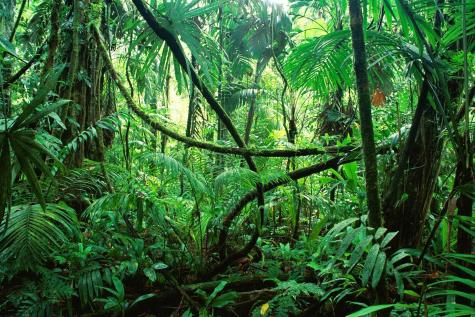
How Much of the Earth's Rainforests are Left?
Rainforests are characterised by heavy rain and a dense tree canopy, which allows little light to pass through to the undergrowth. These huge ecosystems play an essential role in stabilising our planet's climate, water cycle, atmosphere, and levels of species biodiversity. Responsible for providing 20% of the world's oxygen, these lungs of the world really do keep all living things alive.
Since industrial times, humans have destroyed roughly 64% of the Earth's rainforests. The Brazilian Amazon remains the most at risk. In 2022 alone, an area of 363 square miles was deforested. For comparison, this is equal to an area the size of New York City. Anti-environmental policies by the now ex-president of Brazil, Jair Bolsonaro, have left a catastrophic legacy on the world's largest rainforest.
Explore excellent news sources and learn about the incredible organisations defending our rainforests and fighting to implement strict laws and regulations preventing further deforestation.
What is Biodiversity?
Biological diversity refers to the variety of life on Earth; this includes plants, animals, fungi, and microorganisms. The planet's natural biodiversity maintains the stability and balance of our fragile ecosystems. Our planet is so rich that there are still new species being identified and more waiting to be discovered. It is impossible to tell the exact number of plant species, but the figure is estimated to be around 391,000.
Places in Mexico, Africa, and the southwest U.S. have been labelled biodiversity hotspots for their incredibly high levels of biodiversity and endemic species, such as lemurs in Madagascar.
Much of our planet's flora and fauna is threatened by human activity, and biodiversity loss is now a deeply concerning global issue. Since the beginning of industrialisation, plant and animal species have been dying off in numbers 1,000 times higher than the natural rate. Many scientists now warn of a sixth mass extinction if significant action is not taken soon.
The annual UN Biodiversity Summits bring together world leaders to discuss the urgent need for biodiversity protection and restoration. However, a funding gap of billions remains as only $400 million has been pledged out of the $20 billion promised by 2025 for the 30 by 30 agreement - the goal of protecting 30% of the planet's land and oceans by 2030.
Explore reliable news sources, further reading on endangered species, and organisations looking for solutions to increase sustainability and find ways for humans to coexist with nature.
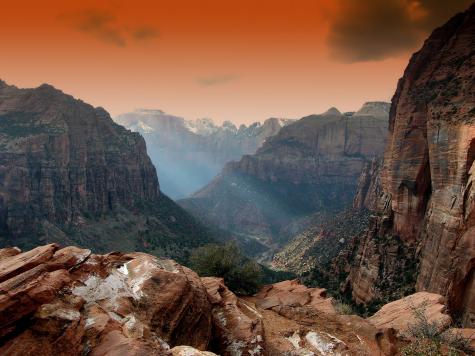
Does Nature Conservation Work?
Nature conservation is the movement driving the protection of our natural world, including preserving and restoring habitats, ecosystems, biodiversity, and threatened species.
The need for this protection has become more urgent as the exploitation of our natural world extends beyond sustainable limits. Nature conservation allows for human use but in a way that does not deplete resources for future generations.
Explore top organisations fighting for a more sustainable world, excellent news outlets, information on rewilding and reforestation, and other nature-based solutions to safeguard our environment.
Conservation successes have been seen with many endangered species. Nepal's previously threatened tiger population has almost doubled, and in China, giant pandas have now been officially removed from the critical red list. An increasing number of countries now recognise the need for greater sustainability, and the rights of nature are now legally recognised in many countries. Bolivia, New Zealand, Ecuador, India, and a growing number of U.S. communities now have laws that protect their natural resources.
Land rights are an essential part of conservation. It is proven that when local communities have control over their own land, the people, flora, and fauna all thrive. If we invest in nature conservation, everybody wins.
Why are Mountains Important?
Anyone who has stood in front of a beautiful mountain landscape or admired the expansive view from high above can appreciate the impressiveness of these natural land formations. Many, however, might not be aware of mountains' vital role in water, food, and energy supply.
Half of the world benefits from the resources that mountains provide. Often called the world's water towers, 60-80% of our freshwater comes from these mountain ecosystems.
Learn more about mountain environments, why mountains matter, and the excellent organisations ensuring their protection. Explore inspiring documentaries featuring the world's bravest mountain explorers and their adventures.
Find a special section dedicated to the destructive mountaintop mining industry, its impact on the landscape, the contamination of local water supplies, and how easy profits and impunity drive this form of coal mining.
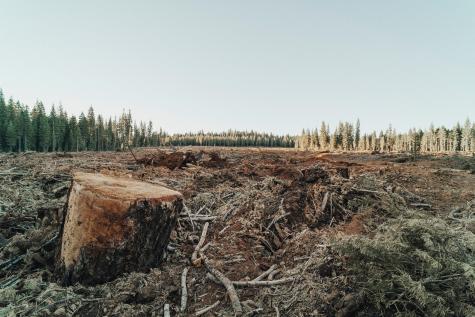
Can We Stop Deforestation?
Deforestation refers to the large-scale clearing of forested areas by the logging industry, who make gigantic profits selling the timber, or by the agricultural sector who use the land for cattle grazing, soybeans, or palm oil plantations.
Since 1990, 20 million acres of forested land have been lost, equating to 2,400 trees lost every minute. This unprecedented rapid loss of nature has created a biodiversity crisis, the consequences of which are only just being fully understood.
Deforestation is a serious contributor to the effects of the global climate crisis. The clearing of tropical forests is responsible for 20% of greenhouse gas emissions into our atmosphere.
One hundred different species of plants, animals, and birds are being lost every day as a direct consequence of this habitat loss. Sadly, 1,400 species of trees are now on the critically endangered list.
If deforestation continues at current rates, all of our rainforests will be gone in 100 years. With 80% of the damage caused by agriculture, we simply must curb this type of intensive farming and shift to a more sustainable method of food production.
Better World Info is an excellent source of information on reforestation projects, food and agriculture, Big Meat, and sustainable agriculture.
Environmental Defenders & The Threats They Face
Dive into our top selection of notable people who have dedicated their lives to protecting our precious planet, natural resources, all living things, and our right to a healthy environment. Often at risk to their own lives, these people are fighting for the very existence of nature, land rights, species protection, and against the contamination of water and food sources, ecocide, high-level corruption, gangs, crime, and violence.
Search our rewilding pioneers, reforestation heroes, and Indigenous leaders on the frontlines. Learn about Berta Cáceres, the murdered Honduran land defender who fought against giant dam construction, and Steven Donziger, whose legal battles fight against the nature-destroying oil industry.
For animal lovers, discover more about David Attenborough's inspiring documentaries on the wonders of the natural world. Find extensive information on the incredible Jane Goodall and how she brought the world of primates alive, ensured the protection of chimpanzees and their habitats, and continues after decades of hard work to fight for the environment.
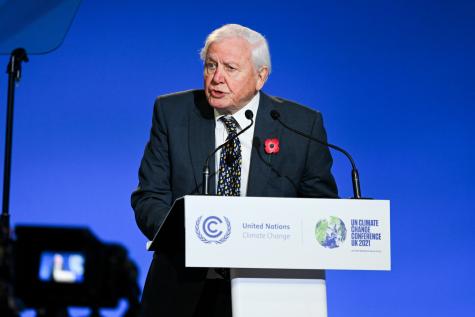
Protecting Nature for a Better World
At current rates, all rainforests will be gone entirely in 77 years. The Amazon Rainforest is now actually emitting more carbon dioxide than it absorbs!
Nature provides a quarter of all modern medicine ingredients and 86 million jobs. Trees absorb and lock away dangerous greenhouse gases. Forest ecosystems are home to endless species of animals and plants. We quite literally depend on nature for our survival.
Pushing it to the limit has made rainforests more vulnerable than ever. Almost 75% have now lost the ability to recover from the increasing threat of wildfires and drought. Deforestation is also aiding the spread of more life-threatening diseases such as malaria and dengue.
We must not wait any longer. Nature and everything it encompasses MUST be protected and preserved for future generations. Better World Info is your knowledge platform for all things nature. The sharing of knowledge helps to raise awareness, supports the essential work of environmental organisations, and brings together like-minded individuals who want to make this world a better place.
‘We need to work with nature, not against it.’ - David Attenborough.
Better World Info is an open platform – We invite experts, NGOs, campaigners, and activists to contribute their knowledge and top resources! We are a constantly expanding, work-in-progress, committed to spreading reliable, critical, and investigative resources to help create an informed, knowledgeable, and curious world.
Author: Rachael Mellor, 20.12.22 (Updated 24.04.25) licensed under CC BY-SA 4.0
For further reading on Nature see below ⬇️
Info on Nature
- WATER & Oceans[4916]
- FORESTS & Rainforests[1559]
- BIODIVERSITY Info[280]
- Nature CONSERVATION[193]
